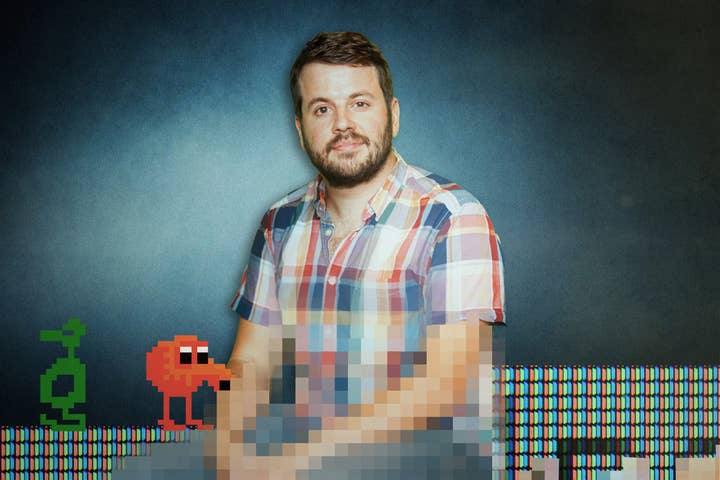Transference - what happened when Ubisoft teamed up with Elijah Wood
Ubisoft explains its relationship with film production company SpectreVision
Ubisoft has revealed it's making a VR game with the support from film production company SpectreVision.
SpectreVision is the firm set up by actor Elijah Wood and movie directors Daniel Noah and Josh C. Waller. The game is a psychological thriller called Transference.
Ubisoft's Fun House division (a team of developers making experimental and interesting concepts within the firm's Montreal studio) met Wood and his team in 2015 as it was working on VR game Eagle Flight.
"Developing video games was just an obvious path of storytelling," explains SpectreVision VP of digital, social and gaming Kyle McCullough. "But with Virtual Reality, it became a necessity if we wanted to tune into the next thing coming. We wanted to be aware of it before it gets here. Ubisoft was spearheading that movement, so we wanted to get involved."

Caroline Martin, executive director of Ubisoft's Fun House in Montreal, adds: "For us, they were so excited about VR and so authentic about what they wanted to do..."
McCullough cuts in: "We were child-like."
Martin again: "Yes! For us, we wanted to continue our VR research after Eagle Flight, but with something different. We wanted to capitalise on our experience from Eagle Flight, but not do Eagle Flight 2. At Fun House, we like to do things that are different. So working with SpectreVision would definitely bring a new colour to our palette."
When McCullough and Wood visited Ubisoft's studio, they were desperate to team-up with the publisher.
"At SpectreVision, Elijah and I have a lot of video game playing experience," he says.
Martin adds: "They're huge gamers."

McCullough again: "It was actually really funny. The first meeting we had in Montreal, we went in, we had a workshop, we were figuring out if we can work together. We left the workshop having decided to do the project. And when we got outside, Elijah and I were looking at each other and asking if we were far enough away so we could jump for joy."
Martin: "And we had the same feeling. We were terrified. We had a star coming in that might want to work with us. We had to be nice and interesting, and then..."
McCullough: "We were fanning out over Ubisoft much more than they were fanning out over us. I am beyond blessed and honoured to be able to work with Fun House."
Martin remembers: "They loved the figurines on our desks, and they were playing with them. That's when I realised we were alike."
"If every theatre required the viewer to put a helmet on and be told a story in private, that would be a pretty powerful thing"
Kyle McCullough, SpectreVision
We've heard before how VR is breaking down the walls between the movie, TV and games industries. And it's something that McCullough agrees with.
"I believe VR is definitely the key for that," he tells us. "There's no question. If you are telling a story in a traditional video game, you present some action, you present some gameplay, you present a cut-scene... people generally skip the cut-scene, and then come back to the gameplay.
"In this case we wanted to have the gameplay be the story in such an engaging way, that the person wants to literally play the story and not the game. And that is where I think things begin to merge in a successful way."
He concludes: "Going forward, telling stories in an interactive space, it is not enough to tell a fine story, you have to tell a great story and make it engaging. And that's the same with film. If you release a movie that's streaming, you are competing with the people on the couch with their phone. You're competing for their attention with Instagram and Facebook and whatever.
"In virtual reality, you are still competing for attention, but you have more control. If every theatre required the viewer to put a helmet on and be told a story in private, that would be a pretty powerful thing."
